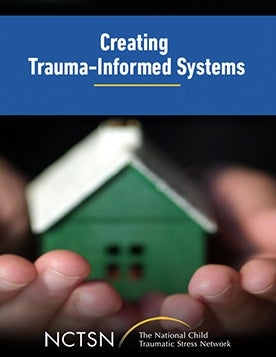
Implementing Trauma-Informed System Change Within Child Welfare
Defines the elements of a trauma-informed child welfare system.
The following resources on child trauma were developed by the NCTSN. To find a specific topic or resource, enter keywords in the search box, or filter by resource type, trauma type, language, or audience.

Defines the elements of a trauma-informed child welfare system.
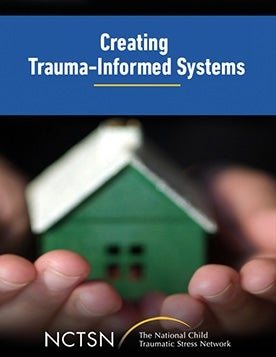
Outlines the history of shootings and violence in US schools.
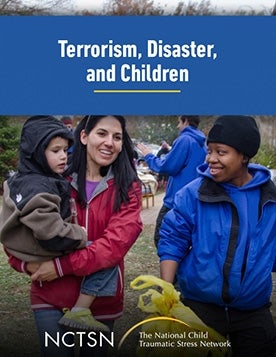
Provides an introduction to the history and importance of child and family disaster mental health. This webinar discusses the importance of how and where disaster services are provided.
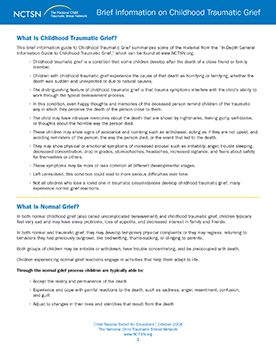
Offers information on childhood traumatic grief. This fact sheet provides descriptions of childhood traumatic grief, normal or typical grief, and what to do for childhood traumatic grief.
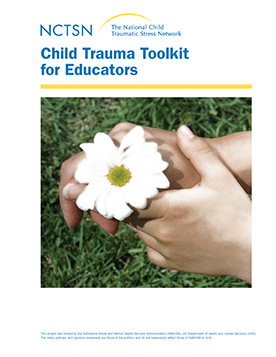
Provides school administrators, teachers, staff, and concerned parents with basic information about working with traumatized children in the school system.
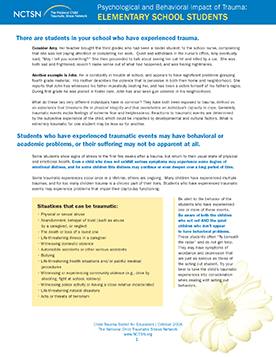
Describes the psychological and behavioral impact of trauma on elementary school students.
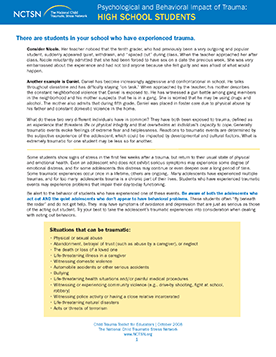
Describes the psychological and behavioral impact of trauma on high school students.
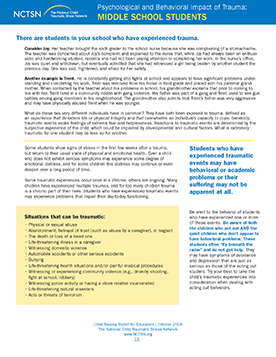
Describes the psychological and behavioral impact of trauma on middle school students.
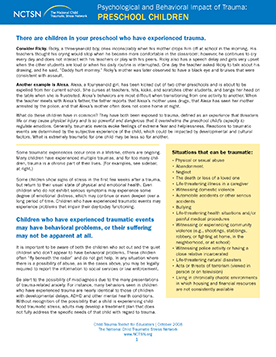
Describes the psychological and behavioral impact of trauma on preschool children.
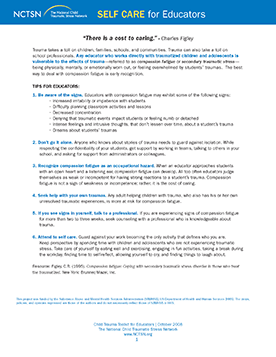
Highlights tips for educators on self-care. This tip sheet is a part of the Child Trauma Toolkit for Educators and includes information on working with traumatized children, and tips for school staff who work with any child who has experienced trauma.
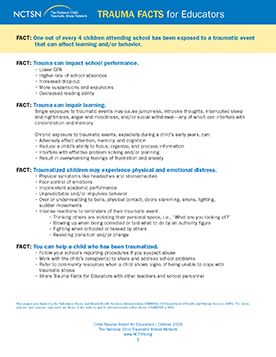
Provides teachers with facts about the impact of trauma on students. This fact sheet, a part of the Child Trauma Toolkit for Educators, includes information on trauma reactions and how teachers can help.

Ofrece información sobre el duelo traumático infantil. Este folleto informativo define lo que es del duelo traumático infantil, el duelo típico y normal y describe qué hacer ante el duelo traumático. Esta es la versión en español de Brief Information on Childhood Traumatic Grief.